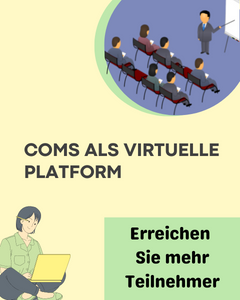Startseite / Konferenzkalender / Informatik / Netzgemeinschaften und Gesellschaftliche Aspekte der Informationstechnologie
Konferenzen > Informatik > Netzgemeinschaften und Gesellschaftliche Aspekte der Informationstechnologie
Wählen Sie ein Land aus
ALLE LÄNDER (8)
1
Dagstuhl-Seminar — The Role of Computer Science in the New World
08. Mär 2026 - 13. Mär 2026 • Schloss Dagstuhl, Deutschland
Eintrags-ID:
1671285
Webseite:
2
AIces 2026 — 1st INTERNATIONAL SCHOOL ON THE COGNITIVE, ETHICAL AND SOCIETAL DIMENSIONS OF ARTIFICIAL INTELLIGENCE
30. Mär 2026 - 02. Apr 2026 • Porto, Portugal
Eintrags-ID:
1689742
Webseite:
3
Lake Como School — MLSR: Machine Learning in Social Science Research: Methods and Applications
04. Mai 2026 - 08. Mai 2026 • Como, Italien
Eintrags-ID:
1690063
Webseite:
4
Dagstuhl-Seminar — Social Intelligence in AI Systems
07. Jun 2026 - 12. Jun 2026 • Schloss Dagstuhl, Deutschland
Eintrags-ID:
1671480
Webseite:
5
Dagstuhl-Seminar — Harms in Digital Games: Sociotechnical Solutions for Prevention
21. Jun 2026 - 26. Jun 2026 • Schloss Dagstuhl, Deutschland
Eintrags-ID:
1671520
Webseite:
6
Dagstuhl-Seminar — Towards Physically Assistive Robots in the Home
28. Jun 2026 - 03. Jul 2026 • Schloss Dagstuhl, Deutschland
Eintrags-ID:
1671562
Webseite:
7
Dagstuhl-Seminar — Multimodal Data Quality – Human, Computational, and Institutional Perspectives
05. Jul 2026 - 10. Jul 2026 • Schloss Dagstuhl, Deutschland
Eintrags-ID:
1671659
Webseite:
8
ICT — 19th International Conference on ICT, Society and Human Beings 2026
25. Jul 2026 - 27. Jul 2026 • Valencia, Spanien
Eintrags-ID:
1695386
Webseite:
Conference-Service.com stellt der Öffentlichkeit ein Kalendarium wichtiger Konferenzen, Symposien und sonstiger Tagungen im wissenschaftlich-technischen Bereich zur Verfügung. Obwohl das Verzeichnis mit großer Sorgfalt zusammengestellt und ständig aktualisiert wird, weisen wir auf die Möglichkeit von Fehlern ausdrücklich hin. Bitte vergewissern Sie sich immer beim Veranstalter, bevor Sie über die Teilnahme oder Nichtteilnahme an einer Konferenz entscheiden.
Stand vom 1. Februar 2026



